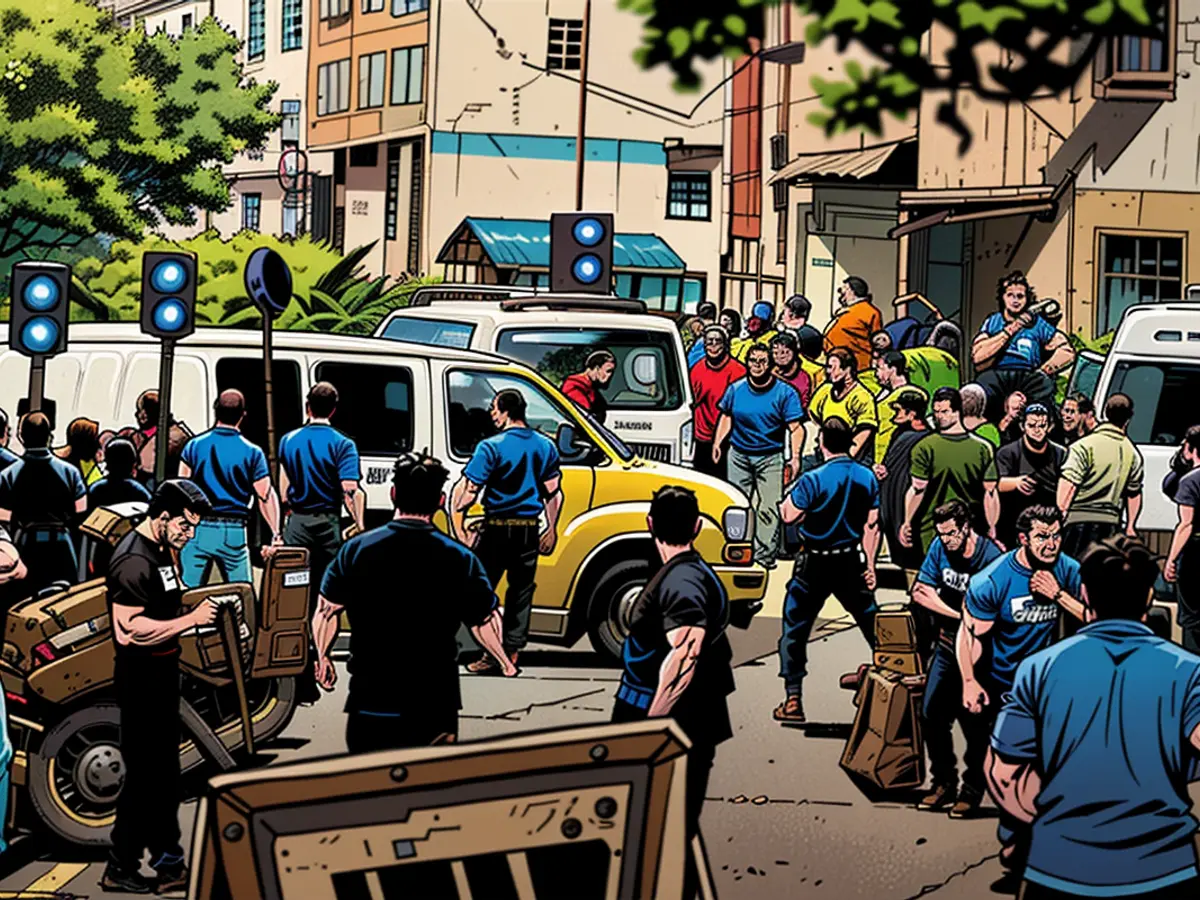Hezbollah threatens retaliation against Israel
Growing apprehensions of another conflict are surfacing. Recent bombings in Lebanon left thousands injured and apparently damaged parts of Hezbollah's military command structure. Hezbollah points the finger at Israel and threatens retaliation. The Israeli military stands ready.
Thousands were hurt, and several lost their lives, due to the suspected coordinated detonation of handheld communication devices in Lebanon. Israel's army and intelligence services have refused to acknowledge responsibility, yet Hezbollah and Iran swiftly placed blame. Israeli military officials hinted at planning retaliation. General Herzi Halevi reportedly convened an evening meeting focusing on "readiness in all spheres, both offensive and defensive."
On Tuesday, approximately 2750 individuals sustained injuries, and 9 lost their lives in Lebanon as a result of the synchronized blasts of what were referred to as "pagers." Reports suggest that the explosive devices were probably tampered with by Israeli operatives.
Hezbollah, a Shia militia backed by Iran, accused Israel and vowed retribution. Nabih Berri, the Lebanese parliament speaker who is an ally of Hezbollah, referred to the incident as an "Israeli massacre and war crime." Lebanese schools and universities are set to close on Wednesday in commemoration of the victims and as a form of protest.
As per Axios, the explosions also had a significant impact on Hezbollah's military command and control structure. The attack, orchestrated by Israel, aimed to disrupt the powerful militia and foster a belief among its members that they are extensively infiltrated by Israeli intelligence, according to an anonymous source. According to a US State Department spokesperson, the US, an ally of Israel, did not participate in the operation and had no prior knowledge of it.
Iran condemns the act
Iranian Foreign Minister Abbas Araghchi denounced the explosions as a "terrorist act" and accused Israel. The Islamic Republic of Iran, a major supporter of Hezbollah, does not acknowledge Israel's right to exist. Araghchi expressed his sympathies to his Lebanese counterpart Abdullah Bou Habib and extended Iran's support.
The United Nations expressed concern about potential escalation in the Middle East following recent events. "These developments are highly concerning, given the extremely volatile situation," said UN spokesman Stéphane Dujarric.
Galant Hawks a Military Response
The explosions in Lebanon took place shortly after a meeting of Israel's security cabinet. The cabinet decided on the return of civilians who had fled their homes in northern Israel due to encounters with Hezbollah, as well as the liberation of hostages from the disputed Gaza Strip and the eradication of the Islamist Hamas, which is affiliated with Hezbollah, as war objectives.
The only means to achieve this is through "a military operation," Israeli Defense Minister Joav Galant said on Monday, according to his office, during a meeting with US mediator Amos Hochstein. The prospect of a diplomatic resolution to the conflict with Hezbollah is dwindling as the militia has linked its fate to that of Hamas in Gaza and has refused to terminate the conflict.
Since the commencement of the Gaza conflict almost a year ago, there have been regular clashes between Hezbollah and the Israeli military along the Israel-Lebanon border. Both sides have suffered casualties, primarily Hezbollah members, as a result of mutual shelling. Approximately 60,000 Israelis have been forced to evacuate their homes in northern Israel. Thousands of individuals have also fled from southern Lebanon to other parts of the country.
Israel aims to coerce Hezbollah through military and diplomatic means to withdraw to the Litani River, as stipulated in UN Resolution 1701. However, Hezbollah insists on continuing the fighting until a truce is established in Gaza. US Secretary of State Antony Blinken is working to reinitiate talks to end the Gaza conflict by Thursday in Egypt. Nevertheless, an agreement between Israel and Hamas appears to be unattainable at this stage. Egypt, Qatar, and the US are serving as intermediaries.
The international community, represented by the United Nations, has expressed concern over the potential escalation in the Middle East due to the recent events. In response to these explosions, Iranian Foreign Minister Abbas Araghchi condemned the actions as a "terrorist act" and accused Israel. The Commission, likely referring to the United Nations, expressed its worry about the volatile situation.








